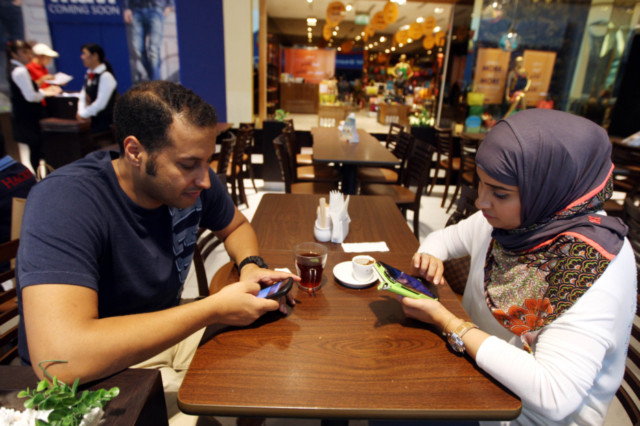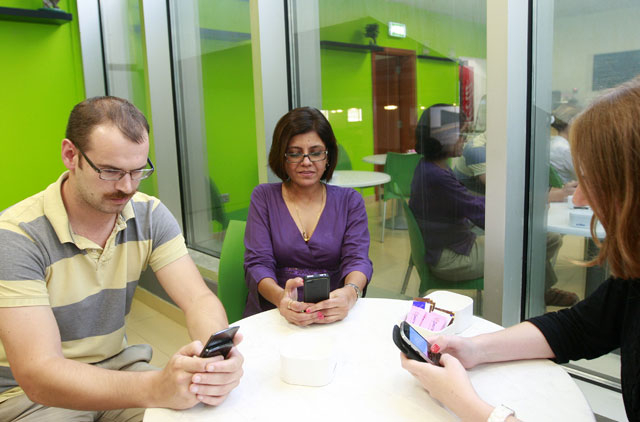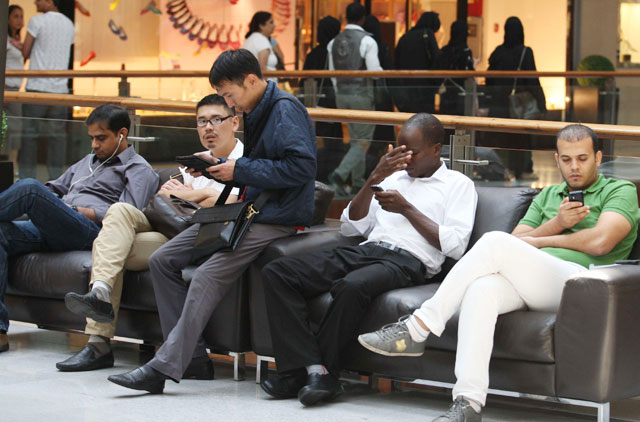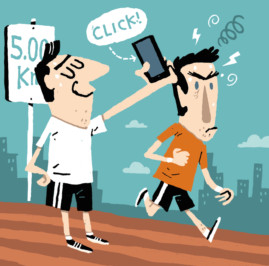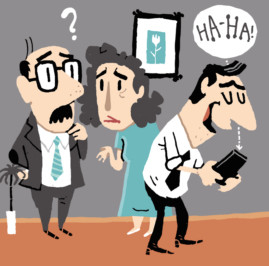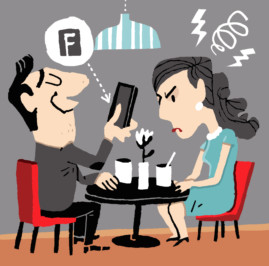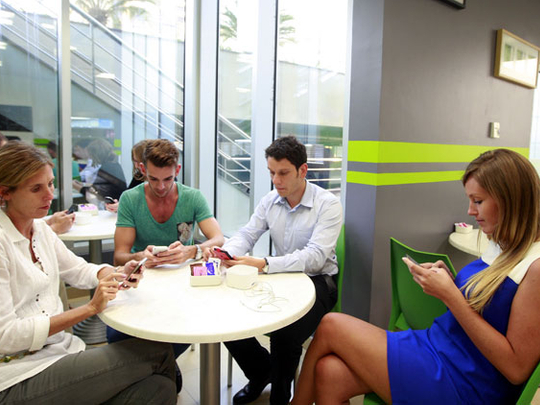
Dubai: Considering how much we rely on our smartphones and tablets in our tech-savvy world, it’s become a tad unclear about who’s really in control – our gadgets or us? The fact that many of us have separation anxiety when our phone isn’t in the palm of our hand is one thing; the more pressing issue is our disintegrating social skills.
That’s where the Stop Phubbing campaign comes in. Phubbing isn’t a well-known word in the UAE yet, but it’s definitely making its way around the world thanks to Alex Haigh, Australia-based creator of the campaign. Although the term, a combination of the words phone and snubbing, may be unfamiliar, its meaning is not.
According to the Stop Phubbing website, phubbing is “the act of snubbing someone in a social setting by looking at your phone instead of paying attention.” Given how much time we all spend staring into our smartphones, chances are we’ve all been a victim of phubbing and even been the ones phubbing others.
Speaking to Gulf News, 23-year-old Haigh said he spent a lot of time working in cafes and restaurants where he had witnessed and experienced plenty of phubbing from people sitting together without talking. A disconcerting statistic on the Stop Phubbing website states: “An average restaurant will see 36 cases of phubbing per dinner session.”
The most pressing issue with phubbing for Melbourne-based Haigh is to stop the problem before its effects are irreversible.
He said: “We have welcomed technology and smartphones so rapidly in our day-to-day lives, it has exploded. We spend time together, but we don’t actually speak. Before we go any further with this behaviour, we need to name and shame the issue so it doesn’t get worse. We need to discuss it and we need etiquette.”
It’s undeniable that technology has become such an intricate part of our lives, which is why Haigh finds it essential for us to define mobile etiquette in social settings.
While phubbing is new to our vocabulary, Haigh suggests the best way to reduce phubbing is by using the word.
He said: “As soon as you name a behaviour, you can call people out on it. Telling someone to ‘stop phubbing’ is more powerful than telling someone they’re ignoring you with their phone. Phubbing assigns meaning and gives the word depth.”
The university marketing graduate realises that this campaign alone is not the solution to bad mobile phone etiquette but it certainly addresses the problem and calls for a solution. Other than adding the word to our vocabulary, the campaign’s website offers some light-hearted alternative solutions, which Haigh said gives the campaign a “light tone without being dramatic and authoritative.”
It’s all there, from phubbing intervention letters that request phubbers to put away the “cold and rectangular” device “with the pretty lights” to anti-phubbing posters and stop phubbing wedding place cards.
Haigh said: “We make it fun and interactive not just ‘No! No! No!’ so that people are actually interested.”
People are definitely interested if the campaign’s worldwide popularity is anything to go by. Developed last year in Melbourne, Australia, the campaign has successfully spread to North and South America, Africa, Europe and Asia, with Mexico and Germany bringing the most traffic to their website.
It doesn’t appear to be slowing down anytime time soon for Haigh either as he considers the campaign’s future.
“It has exploded so rapidly and I’m just trying to catch up and see where things are headed. The international response is definitely something to consider.”
For more information or to download any of the campaign’s posters visit: www.stopphubbing.com


